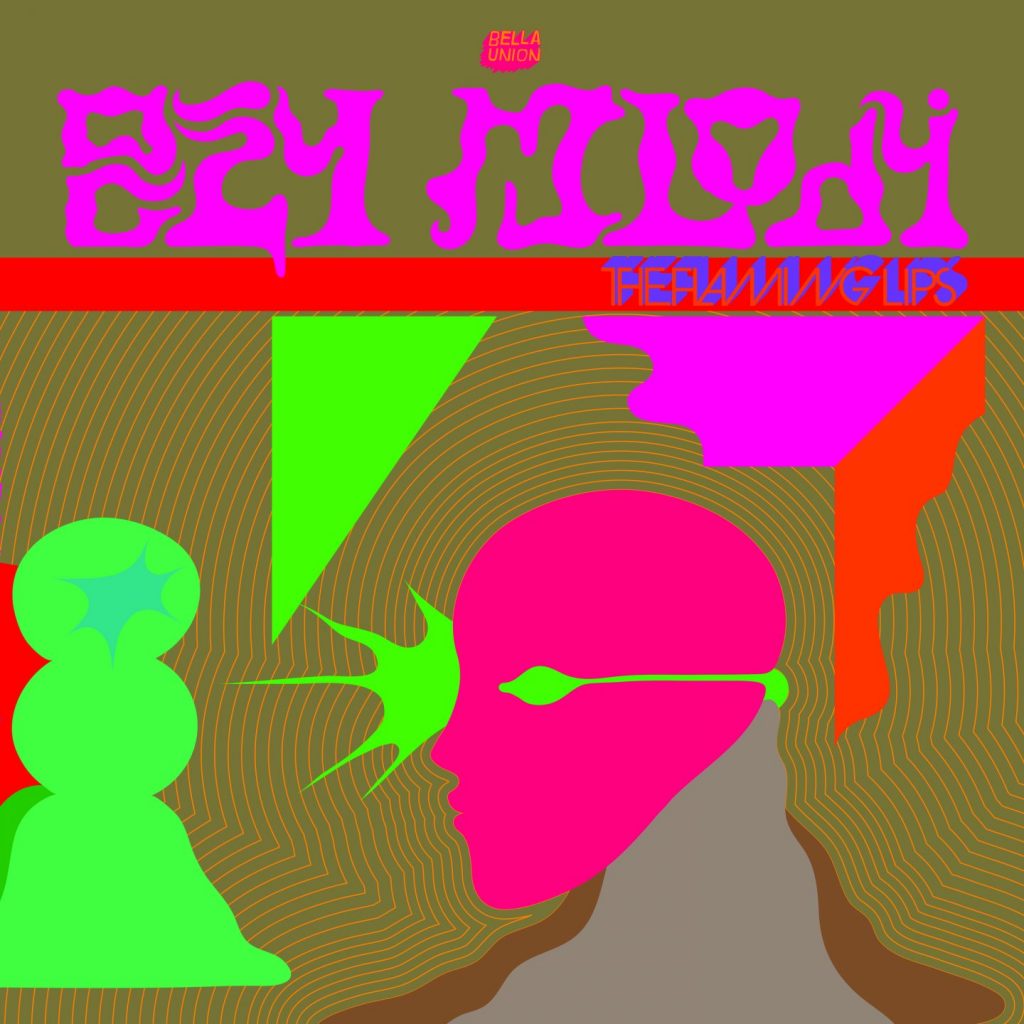THE FLAMING LIPS’ career spans 30 years by now, and has seen them express themselves in post-punk, psychedelic rock, alternative pop, electronic music and everything in-between. Unavoidably, though, many people will recognize them from their collaboration with Miley Cyrus on her experimental Miley Cyrus & Her Dead Petz album. Subsequently, the queen of controversy also guests on the album’s closing track ‘We a Famly’.
The listener’s enjoyment of the album will vary a lot depending on their mood, since it is a very atmospheric and level-paced peace of work. That said, there are quite a few flaws that the correct mind-set cannot help alleviate. Throughout the album, essentially the same songwriting tools and tropes are used: light, ethereal keyboard scale runs and arpeggios, on which dreamy, angelic vocals are layered; all that interspersed with various resonating, oscillating samples and held together by a constant, yet laid-back electronic-drum beat.
The simplicity of the songs is a double edged sword. On one side, it helps to pick apart all the different aspects of a composition or just relax and allow oneself to be engulfed by the atmospherics. On the other hand, while giving the album a sense of consistency and unity, the unchanging sound and structure makes the album, to say it plain, boring. The songs quickly become interchangeable and forgettable, since there is not much on offer after the songwriting patterns and tools have been figured out.
There are a few exceptions: ‘Nigdy Nie (Never No)’ has a catchy hip hop beat that cleverly interplays with samples, creating a sense of crescendo that, cheekily, never comes. Likewise, ‘One Night While Hunting for Faeries and Witches and Wizards to Kill’ is a call-back to their rock music roots, the use of guitars coming as a genuine surprise whilst the vocals are almost reminiscent of The Beatles.
The lyrics are a mixed bag as well, amusing at first with their swearword laden depictions of unicorns, forest trips and dragons, they eventually become meaninglessly kitsch.
While the words and the music could be approached in an ironic, tongue-in-cheek way (as, quite possibly, the band intended), it does not save the album from the lack of direction and variety it suffers from.
Oczy Mlody is not an offensively bad album by any measure, but it certainly can irritate or tire the listener with its lack of purpose. The disappointment is heightened by the fact that this is the fourteenth album of a band well-known for being off-kilter and unafraid to change and mix their sounds. Sadly, not every cocktail comes out palatable.











